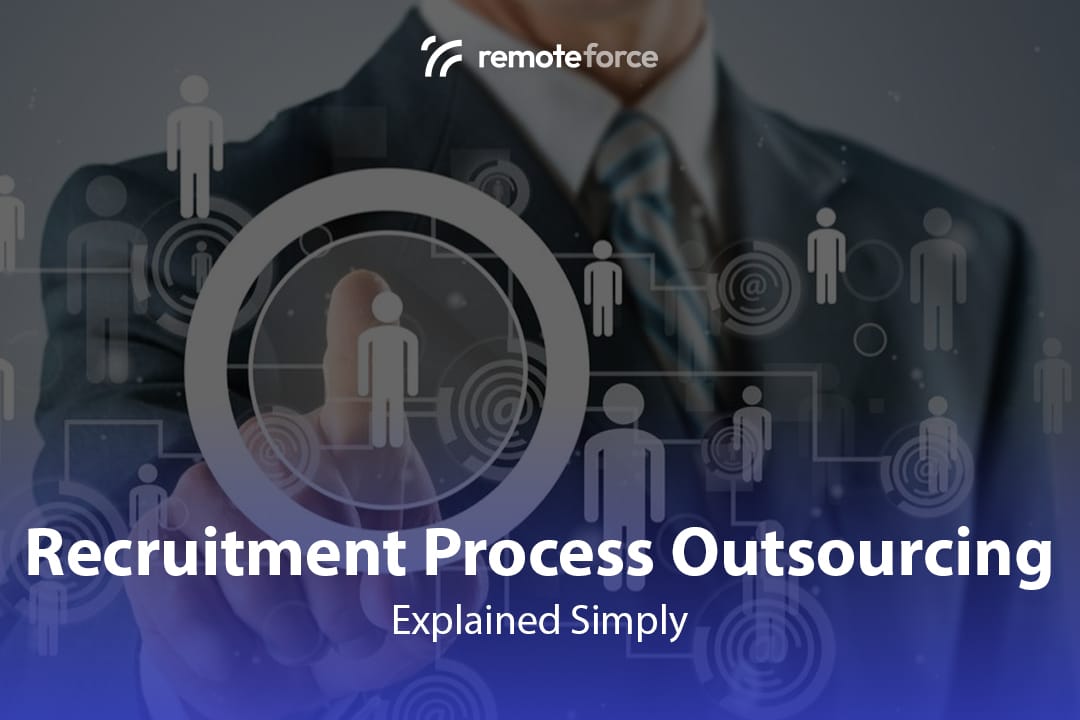In today’s competitive talent landscape, hiring the right people—whether for specialized roles like web development and accounting or high-volume positions—can make or break a business. Many companies struggle to keep up with fluctuating demands, limited internal resources, and the ever-changing complexity of modern recruitment.
This challenge has led to the rise of Recruitment Process Outsourcing (RPO), a strategic solution that is far more comprehensive than simply hiring a staffing agency. RPO is about entrusting all or part of your permanent employee recruitment functions to an external expert, turning a transactional task into a scalable, strategic advantage.
Table of Contents
ToggleDefining Recruitment Process Outsourcing (RPO)
Recruitment Process Outsourcing (RPO) is a form of business process outsourcing (BPO) where a company transfers the ownership and management of all or part of its recruitment process to an external provider.
The RPO provider becomes an extension of the client’s HR department, embedding their specialized recruiters, technology, and methodologies directly into the client’s organization. They manage the entire talent acquisition lifecycle, operating under the client’s brand and within their cultural guidelines.
RPO vs Traditional Recruitment Agencies
It’s crucial to understand that RPO is not the same as using a traditional staffing agency or headhunter. The differences lie in scope, alignment, and commitment:
| Feature | Recruitment Process Outsourcing (RPO) | Traditional Staffing/Recruiting Agency |
|---|---|---|
| Scope of Service | Manages the entire process (sourcing, screening, interviewing, onboarding, technology). | Focuses on filling a single, specific opening or set of openings. |
| Integration | Recruiters operate under the client’s name and email (integrated and branded). | Recruiters operate externally and represent multiple clients. |
| Pricing Model | Typically a management fee (fixed or variable) based on the scope or capacity used. | Typically a contingency fee (a percentage of the hire’s salary) only paid upon successful placement. |
| Strategic Goal | To improve long-term efficiency, quality of hire, and employer brand. | To quickly fill a vacancy for a fee. |
| Technology Use | Provides and integrates Applicant Tracking Systems (ATS) and advanced sourcing tools. | Uses its own proprietary database and systems. |
How Does RPO Work? The Full Talent Lifecycle
A typical RPO partnership is comprehensive, covering the entire journey from identifying a talent need to the new employee’s first day. The process can be broken down into four core stages:
1. Strategy and Planning
The RPO provider starts by understanding the client’s business goals, culture, and specific talent needs (e.g., highly specialized roles like legal compliance experts or high-volume roles like secretaries).
- Workforce Planning: Analyzing current needs and forecasting future talent requirements.
- Employer Branding: Developing strategies to market the client as an attractive employer to passive candidates.
- Compliance Review: Ensuring the entire hiring process adheres to all relevant labor laws and regulations.
2. Sourcing and Attraction
The RPO team utilizes its vast network and advanced technology to proactively find and engage candidates.
- Multi-Channel Sourcing: Moving beyond job boards to leverage professional networks, social media, and proprietary databases.
- Talent Pipelining: Continuously building relationships with candidates who have the skills the client will need in the future, even if no immediate opening exists.
3. Screening and Selection
This is where the RPO provider implements structured processes to rigorously vet candidates, saving the client significant time.
- Initial Screening: Assessing resumes, cultural fit, and basic qualifications.
- Structured Interviews: Conducting standardized interviews to reduce bias and ensure fairness.
- Testing and Assessment: Administering technical, psychological, or behavioral assessments appropriate for the role (e.g., assessing technical skills for graphic designers or attention to detail for accounting staff).
4. Offer, Onboarding, and Data Management
The RPO role doesn’t stop at the acceptance of an offer. They manage the final steps to ensure a smooth transition.
- Offer Negotiation: Managing the offer process, negotiations, and closing the deal.
- Pre-Boarding: Handling administrative tasks like background checks and preliminary paperwork.
- Reporting: Providing detailed analytics on all recruitment metrics (cost-per-hire, time-to-fill, source-of-hire) for continuous improvement.
The Key Strategic Benefits of Adopting RPO
Implementing RPO offers significant advantages that directly impact business performance and competitiveness:
- Cost Reduction and Control: RPO converts fixed internal recruitment costs (salaries, training) into variable costs, allowing the company to budget more effectively and scale spending based on actual hiring volume.
- Scalability and Flexibility: RPO teams can rapidly scale their resources up during hiring surges (e.g., opening a new branch) or scale down during slower periods, ensuring maximum efficiency.
- Access to Superior Technology: RPO providers bring state-of-the-art Applicant Tracking Systems (ATS), AI-driven sourcing tools, and reporting dashboards that clients often cannot afford to implement internally.
- Improved Quality of Hire: Focused RPO specialists, who recruit for specific roles constantly, often possess deeper domain expertise, leading to better candidate matches and higher employee retention rates.
- Enhanced Compliance and Legal Safety: RPO partners are experts in global and local labor laws. They ensure that all hiring practices, documentation, and data privacy procedures are fully compliant, significantly reducing the client’s legal risk.
Conclusion
Recruitment Process Outsourcing (RPO) is a strategic investment that frees your business from the logistical burden and high costs of in-house recruiting, allowing you to focus on your core competencies. It is the definitive solution for companies looking for a flexible, cost-effective, and legally compliant way to acquire top-tier talent consistently. By integrating an RPO partner, you gain instant access to specialized expertise, superior technology, and the agility needed to succeed in the dynamic labor market.
Whether your needs are specialized—like filling demanding roles in web and app development or legal compliance—or require high-volume recruitment, RemoteForce offers scalable RPO and manpower services tailored to your exact specifications. We ensure your hiring process is not just efficient, but strategic, compliant, and focused on securing the talent you need for growth.




